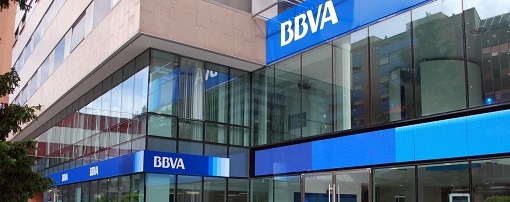A reported 41 per cent rise in Aviva’s private health business has contributed to a nine per cent uptick in its operating profit for its financial year ended 31 December.
The British insurer’s operating profit rose to over £1.5 billion with the company saying that its position as the UK’s "leading" diversified insurer, with major businesses in Canada and Ireland, was “clearly delivering”.
In light of the results, Aviva has raised its total dividend by eight per cent to 33.4p and shared that it has now returned more than £9 billion in capital and dividends to shareholders over the past three years.
Commenting on the results, Aviva group chief executive Amanda Blanc said: “Aviva is financially strong. We are trading consistently well. Our prospects have never been better. We have leading businesses in growing markets, a fantastic brand, and we are investing substantially to make service better for our 19 million customers. All the ingredients are in place to ensure Aviva continues to deliver an outstanding performance for our customers and our shareholders.”
Blanc also noted that Aviva’s workplace pensions business was “continuing to thrive” having recorded £6.9 billion of net flows – a figure it said was boosted by winning 477 new schemes during 2023.
Due to the strong performance, Aviva also announced a new £300 million share buyback programme, whilst also upgrading its dividend guidance to mid-single digit cash cost growth.
Last year Aviva acquired AIG’s UK protection business for £460 million. At the time it said the acquisition would build upon its momentum in the protection market where it has delivered “strong organic growth”.
Latest News
-
Gemini to cut quarter of workforce and exit UK, EU and Australia as crypto slump forces retrenchment
-
Bank ABC’s mobile-only ila bank migrates to core banking platform
-
Visa launches platform to accelerate small business growth in US
-
NatWest to expand Accelerator programme to 50,000 members in 2026
-
BBVA joins European stablecoin coalition
-
eToro partners with Amundi to launch equity portfolio with exposure to ‘megatrends’
Creating value together: Strategic partnerships in the age of GCCs
As Global Capability Centres reshape the financial services landscape, one question stands out: how do leading banks balance in-house innovation with strategic partnerships to drive real transformation?
Data trust in the AI era: Building customer confidence through responsible banking
In the second episode of FStech’s three-part video podcast series sponsored by HCLTech, Sudip Lahiri, Executive Vice President & Head of Financial Services for Europe & UKI at HCLTech examines the critical relationship between data trust, transparency, and responsible AI implementation in financial services.
Banking's GenAI evolution: Beyond the hype, building the future
In the first episode of a three-part video podcast series sponsored by HCLTech, Sudip Lahiri, Executive Vice President & Head of Financial Services for Europe & UKI at HCLTech explores how financial institutions can navigate the transformative potential of Generative AI while building lasting foundations for innovation.
Beyond compliance: Building unshakeable operational resilience in financial services
In today's rapidly evolving financial landscape, operational resilience has become a critical focus for institutions worldwide. As regulatory requirements grow more complex and cyber threats, particularly ransomware, become increasingly sophisticated, financial services providers must adapt and strengthen their defences. The intersection of compliance, technology, and security presents both challenges and opportunities.
© 2019 Perspective Publishing Privacy & Cookies



.jpg)









Recent Stories